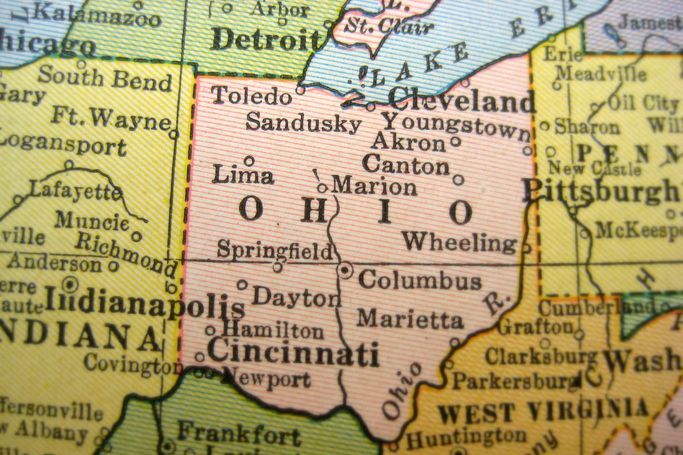
Compare Providers
Download our outplacement comparison sheet
Request Pricing
Compare our rates to other providers
Office relocation.
This can be a heavy phrase for many due to the causes of said office relocation.
Sometimes it can occur because your business is doing well. Other times, it can be the consequence of your business doing poorly.
For example, let’s say that your business has experienced huge growth over the last 3 years. So much growth that you can no longer produce enough of your product to meet demands, due to your facility’s constraints. This would be a great reason to relocate your office!
Or you could have an office relocation due to lack of company funds. Rent might have increased for your facility, or you might no longer be able to make any profit in the geographic area where you are located.
As you can see, there are a plethora of reasons why a company might partake in an office relocation.
But no matter the reason, office relocations all have one thing in common: their importance.
The success of companies depend on how well office relocations are conducted, so management and HR must put their full effort and brain power into making sure that they run smoothly.
A mistake in an office relocation could lead to a company losing thousands, hundreds of thousands, or even millions of dollars. This could be the result of downtime in production, errors in paperwork, or even lawsuits from employees on the grounds of unfair practices.
These are just a few ways that an office relocation could go south, but hopefully it gives you some understanding of why it is so important to get them right.
In this blog, we will go over best practices for how to choose a new location, how to announce your office relocation, services you can use, planning, and also a checklist.
Office Relocation: Choosing A New Location
Your strategy for choosing a new location will depend on why your executive staff decided to relocate in the first place.
If the motivation for relocation was to save money on costs, you will want to relocate to an area where there will be low overhead costs in the long term.
Your relocation might not be to save costs though! Maybe, you need a bigger facility to meet the production demands of your customers.
In this case, you might still be budget conscious, but the main portion of your strategy will be focused on finding a facility to accommodate your demand over the next several years.
This applies to other types of business too, not just manufacturing!
Maybe your business is experiencing so much demand from customers, you need more developers to support your application. But, you are in a location with very limited development talent. In this situation, it would behoove you to move to a different geographical area where there is a bigger supply of developers. (In this example, you could move to somewhere like Silicon Valley.)
There are several other things you might want to think about when it comes to finding a specific location:
- Is this a location that is easy for my employees to get to?
- Will it be cheap to ship/receive materials here from a logistics standpoint?
- How close is the office to the nearest airport?
- Does the geographic location have the type of skills in their labor pool to support our future endeavors?
Office Relocation: Announcement to Employees and Stakeholders
When you decide to relocate your office, you will need to notify several different groups of people. This includes:
- Employees
- Clients/Customers
- Vendors
- Press
- Government Authorities
Each of these groups will need to be notified in different ways. For example, an employee might have different concerns about your office relocation, than say your local government authority or your vending machine supplier.
You can download our office relocation announcement template here.
Here are some pointers for making an office relocation announcement for each of the above groups:
Employees: It is important to notify employees first. Letting employees hear about the news in the press or from stakeholders external to your company can lead to disgruntlement and anxiety.
Also, make sure that the announcement is not only made in person, but that a letter (like our template) is also provided in some channel.
You will want to be straight forward with your employees about what this means for their employment at your organization. Will there be layoffs? If so, who will most likely be impacted? When will people know if they will be impacted? Will people be expected to relocate if the new location is far away?
Clients/Customers: Make sure that your clients and customers know about your business relocation if it will directly impact their relationship with you. Will they experience a delay in supplies? Will you no longer be able to provide them with services? Make sure to explain this information, and also provide them with your new physical address for logistics purposes.
Vendors: Your vendors are the other people or companies that provide you with the supplies you need to do your business. Some of your vendors might not need to be notified if they only provide virtual services. (Like a CRM or a marketing automation platform.) But other vendors who are responsible for in person relationships will need to be notified as soon as possible.
Press: News of your office relocation will get out in the press, whether you tell them or not. So, by making an announcement to the press upfront, your company can control the narrative around the office relocation. Make sure that your press team has the right details about your office relocation, and that the publication you work with is a reputable source. Always provide contact information to the public for further questions.
Government Authorities: Depending on the size and type of your relocation, your company might be subject to compel with the WARN Act if there are layoffs. Make sure that your lawyer reviews the WARN ACT qualifications, and if you do have to abide by it, that you provide the proper notice time to employees.
Office Relocation: Services For Your Company
It is 2019! Which means there are companies out there to help with every need you have ever had.
Do you know where I am going with this?
Yes! There are organizations out there that specialize in helping businesses conduct an office relocation.
Here are a few of the best ones for you to check out:
- Chipman Relocation & Logistics
- Berger Moving and Storage
- Contract Furnishings
- Gosselin Mobility
- Daryl Flood Relocation & Logistics
Office Relocation: Making a Plan
Depending on the size of your current office, your relocation could take a lot of time and effort. That is why it is always a good idea to have a plan in place for the entire move.
In this industry, a lot of people also refer to an office relocation plan as an office relocation timeline.
Here are the main things to consider when making an office relocation plan or timeline:
- When do you take ownership of the new office?
- When do you have to be out of the old office?
- When are your company downtimes? Is it possible to move during these times?
- Who will be responsible for what portions of the move?
- Will employees be relocated? If so, what is the time frame for that?
- Will employees be laid off? If so, when will be their last day?
A sample office relocation plan/timeline could look like this:
Things To Consider Immediately
- Budget
- Goals
- Desired location
- Hiring a service to assist
- Notifying government authorities as soon as possible about office relocation
6 Months Out
- Work with a commercial or industrial design firm to fulfill your needs
- Order any equipment or furniture
- Start any needed renovations
3 Months Out
- Set up services at new location (cable, servers, cafeteria, etc)
- Design a process for moving or getting rid of materials at current location
- Set up new insurance
- Let all stakeholders know of new address
- Announce to employees relocation and how it will impact them
1 Month Out
- Confirm move date
- Give detailed office plans to key contacts responsible for different areas
- Update address on website, for tax documents, etc
- Give staff instructions on how to save, backup, and move files and data
1 Week Out
- Allow staff a time frame to pack up their desks and move to new office
- Inspect the old building and new building
- Make notes of any damage to old or new building, and any equipment or furniture. Report to the appropriate parties.
Office Relocation: A Checklist For Your Move
Now that you understand how to build an office relocation plan/timeline, it is important that you also have knowledge of how to make an office relocation checklist.
When creating a checklist for your relocation, there are many different things to consider. Some people find it useful to break down the checklist into different categories, so that they can then be delegated out to the respective areas within the organization.
You can download our office relocation checklist here:
For example, the IT department would be responsible for backing up data and moving servers, while your facilities team would be responsible for cataloging moving furniture.
Here are some sample items that you might want to include in different categories on your office relocation checklist:
Who will be on your move team?
- Executives?
- HR?
- Facilities?
Who should we consult with prior to relocation?
-
- The board
- Vendors
- Unions
- Associated companies
What things are we looking for in a location?
-
- Cost
- Local talent
- Local transportation
- Demand in area
What is our overall budget?
-
- Insurance
- Moving
- Relocation incentives
- Layoff packages
- Security
- IT services
Office Design
-
- Furniture
- Equipment
- Productivity
- Brand and style
These are just a few categories that your organization should consider in your office relocation checklist. Make sure to download our checklist template for the full list of items we recommend that you consider.
Office Relocation: The Final Say
Relocating an office is no small feat. Whether you have a small company, or a huge corporation, there are several things to consider before relocating. The most important thing is to have a strategy for your move, and then an organized plan for how to achieve your goals.
In need of outplacement assistance?
At Careerminds, we care about people first. That’s why we offer personalized talent management solutions for every level at lower costs, globally.


